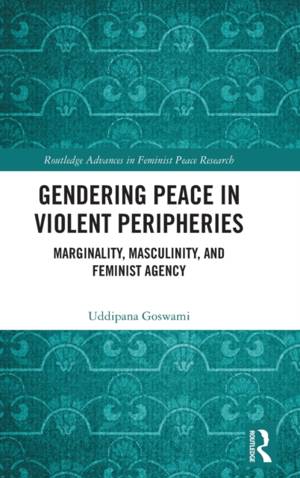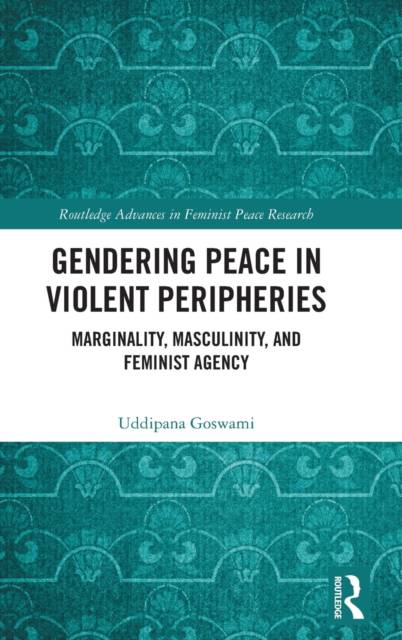
- Retrait gratuit dans votre magasin Club
- 7.000.000 titres dans notre catalogue
- Payer en toute sécurité
- Toujours un magasin près de chez vous
- Retrait gratuit dans votre magasin Club
- 7.000.000 titres dans notre catalogue
- Payer en toute sécurité
- Toujours un magasin près de chez vous
Gendering Peace in Violent Peripheries
Marginality, Masculinity, and Feminist Agency
Uddipana GoswamiDescription
This book forwards Assam (and Northeast India) as a specific location for studying operations of gendered power in multi-ethnic, conflict-habituated geopolitical peripheries globally.
In the shifting and relational margins of such peripheral societies, power and agency are constantly negotiated and in flux. Notions of masculinity are redefined in an interlaced environment of militarization, hyper-masculinization, and gendered violence. These interconnections inform victimhood and agency among the most vulnerable marginalized constituencies - namely, women and migrants. By centering the marginalized in its inquiry, the book analyzes obstacles to achieving positive, organic peace based on cooperation and mutual healing. The tools used to perpetuate an endless cycle of violence that makes conflict a habit - a way of life - are identified in order to enable resistance against them from within the margins. Such resistance must be based on reflexivity and strategic, cautious radicalism. This involves critically interrogating the inherent connections between engendered pasts and feminist futures, local changes and global contexts, as well as between small, incremental changes and big shifts impacting entire societies, nations, and global orders.
This book will be of much interest to students of ethnic conflict, conflict resolution, feminist peace, and Asian/South Asian politics.
Spécifications
Parties prenantes
- Auteur(s) :
- Editeur:
Contenu
- Nombre de pages :
- 166
- Langue:
- Anglais
- Collection :
Caractéristiques
- EAN:
- 9781032211077
- Date de parution :
- 12-08-22
- Format:
- Livre relié
- Format numérique:
- Genaaid
- Dimensions :
- 156 mm x 234 mm
- Poids :
- 426 g







